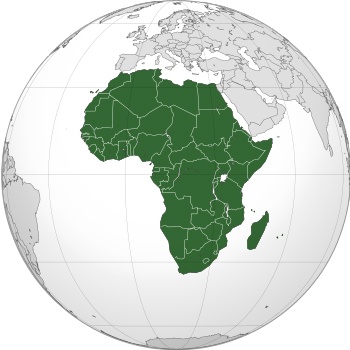 Currently one of the fastest growing markets for fibre is in Africa, with huge communications infrastructure rollouts underway across the continent. Organisations such as the FTTH Council Africa are increasingly active in pushing the benefits of fibre networks, while new players such as Google are entering the market. And the impact will be tremendous – consultants McKinsey predicts that the internet will add $300 billion to Africa’s Gross Domestic Product by 2025.
Currently one of the fastest growing markets for fibre is in Africa, with huge communications infrastructure rollouts underway across the continent. Organisations such as the FTTH Council Africa are increasingly active in pushing the benefits of fibre networks, while new players such as Google are entering the market. And the impact will be tremendous – consultants McKinsey predicts that the internet will add $300 billion to Africa’s Gross Domestic Product by 2025.
There are two major trends driving fibre in Africa. Firstly, rollouts are building on new subsea cables that link the continent to the rest of the world. High speed networks are being extended from coastal landing sites into landlocked countries, delivering the benefits of fast internet access to an even greater number of people.
Secondly, companies are using the latest fibre technology for these networks. As many countries have limited existing data network infrastructure, deployments can be built totally from fibre, extending to the home or premises, without needing to incorporate legacy copper cables. Essentially this means that African businesses and consumers can benefit from the speed and capacity of FTTH/FTTP as soon as implementation is completed.
As a continent, Africa is investing heavily in more reliable electricity and transport infrastructure and the vastly improved communications networks promise to unlock the potential across the continent and empower people and business to tap into the online world. We’ve already seen Nigeria identified as one of the four fast-growth MINT countries and this can spread to the rest of Africa as high speed internet rolls out.
Through better access to networks businesses have increased opportunities to sell on a local and global scale, new infrastructure will attract international investment and drive up the standard of living for individuals.
Government efficiency will increase and vital services such as education and healthcare will be improved as connection speeds rise through new fibre infrastructure .
Fast internet access helps with teaching at all levels, and provides the ability for university students to collaborate with their peers around the world, without needing to leave the country.
This can only have a positive effect on retaining skills and strengthening local economies for current and future generations.
Fibre networks increase the capacity to the home by a factor of 10, dramatically delivering huge benefits wherever they are implemented around the world. This unlocks a fresh chapter for Africa, as now people are empowered and they have the potential to provide a platform for individual growth combined with GDP advances across the entire continent.


